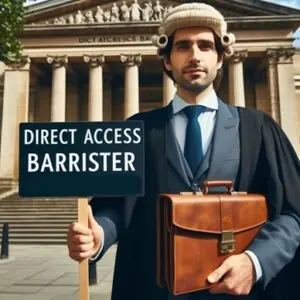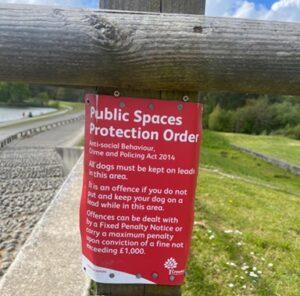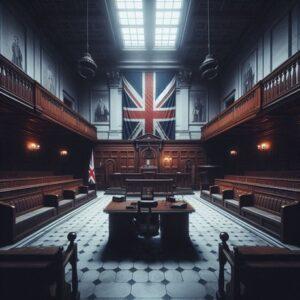Here are the 25 oldest pieces of UK legislation, in chronological order, that are still in use today :-
- Statute of Marlborough 1267: This statute established the common law in England, including the principle of due process, the right to a fair trial, and the requirement that legal disputes be resolved by a jury.
- Magna Carta 1297: This historic document established the principle of the rule of law and limited the power of the monarch by granting certain rights and freedoms to the people.
- Statute of Westminster 1275: This statute set out the legal procedure for bringing criminal charges and introduced the concept of “treason” as a criminal offense.
- Quia Emptores 1290: This statute regulated the sale of land and established the principle of subinfeudation, which allowed tenants to sublet or sell their land.
- Statute of Gloucester 1278: This statute set out the legal procedure for bringing civil claims and established the principle of “trial by jury.”
- De Donis Conditionalibus 1285: This statute established the concept of “fee tail” in property law, which allowed landowners to restrict the inheritance of their property.
- Statute of Quo Warranto 1290: This statute regulated the granting of royal charters and established the principle that all franchises and liberties should be granted by the king or his representative.
- Westminster II 1285: This statute regulated the use of the writ of “novel disseisin,” which allowed a landowner to recover property that had been taken by force.
- Statute of Winchester 1285: This statute established the principle of “hue and cry,” which required all citizens to assist in the capture of criminals and the maintenance of law and order.
- Articuli Super Chartas 1300: This statute confirmed the rights and privileges granted in Magna Carta and established the principle that the king was subject to the law.
- The Charter of the Forest 1217: This historic document granted certain rights and freedoms to the people, including the right to use the royal forests for grazing and hunting.
- The Charter of Liberties 1100: This historic document granted certain rights and freedoms to the people, including the right to a fair trial and protection from arbitrary imprisonment.
- The Assize of Clarendon 1166: This law established the principle of “trial by jury” and regulated the legal procedure for criminal trials.
- The Statute of Mortmain 1279: This statute regulated the transfer of land to the church and limited the ability of religious orders to acquire land.
- The Statute of Westminster II 1285: This statute established the principle of “trial by jury” in civil cases and regulated the use of the writ of “novel disseisin.”
- The Statute of Merton 1235: This statute regulated the use of “common land” and established the principle that landowners could enclose their land.
- The Statute of Marlborough 1267: This statute established the principle of “trial by jury” and regulated the legal procedure for civil trials.
- The Statute of Westminster III 1354: This statute established the principle of “due process” and granted certain rights to accused persons, including the right to a fair trial.
- The Statute of Westminster I 1275: This statute regulated the legal procedure for criminal trials and introduced the concept of “treason” as a criminal offense.
- The Statute of Gloucester 1278: This statute established the principle of “trial by jury” and regulated the legal procedure for civil trials.
- The Statute of Quia Emptores 1290: This statute regulated the sale of land and limited the ability of tenants to sublet or sell their land.
- The Statute of Winchester 1285: This statute regulated the maintenance of law and order and established the principle of “hue and cry.”
- The Statute of Northampton 1328: This statute regulated the use of force by constables and established the principle that individuals had the right to protect themselves and their property.
- The Statute of Westminster I 1275 (Second enactment): This statute regulated the legal procedure for civil trials and established the principle of “trial by jury.”
- The Statute of Treasons 1351: This statute established the concept of “high treason” as a criminal offense and regulated the legal procedure for treason trials.
It is worth noting that while these laws are still technically in use, many have been amended or repealed over the centuries, and their relevance in modern legal practice is limited.
If you wish to learn more about these laws or access their full text, you can search for them on the official UK legislation website: https://www.legislation.gov.uk/.
What is an Act of Parliament ?
An Act of Parliament creates a new law or changes an existing law. An Act is a Bill that has been approved by both the House of Commons and the House of Lords and been given Royal Assent by the Monarch. Taken together, Acts of Parliament make up what is known as Statute Law in the UK.
Check out our articles on HHJ Farquhar, HHJ Bedford and the highly questionable Sussex Family Justice Board.
Read the reviews of Gavin Howe Barrister
“He is awful, underhanded and should not be practising law!”
Latest Articles
- What is the Legal Services Board ?The Legal Services Board (LSB) is an independent regulatory body that oversees the legal services sector in England and Wales.… Read more: What is the Legal Services Board ?
- Direct Access BarristerA Direct Access Barrister, also known as a Public Access Barrister, enables members of the public to directly instruct a… Read more: Direct Access Barrister
- What is a Public Spaces Protection Order (PSPO)?A Public Spaces Protection Order (PSPO) is a powerful tool introduced in 2014 under the Anti-Social Behaviour, Crime and Policing… Read more: What is a Public Spaces Protection Order (PSPO)?
- Transparency and Open Justice BoardThe Lady Chief Justice of England and Wales, Dame Sue Carr, has created a new Transparency and Open Justice Board.… Read more: Transparency and Open Justice Board




